





Google's SGE integrates generative AI into search, impacting marketing strategies and emphasizing the need for adaptation in 2024.
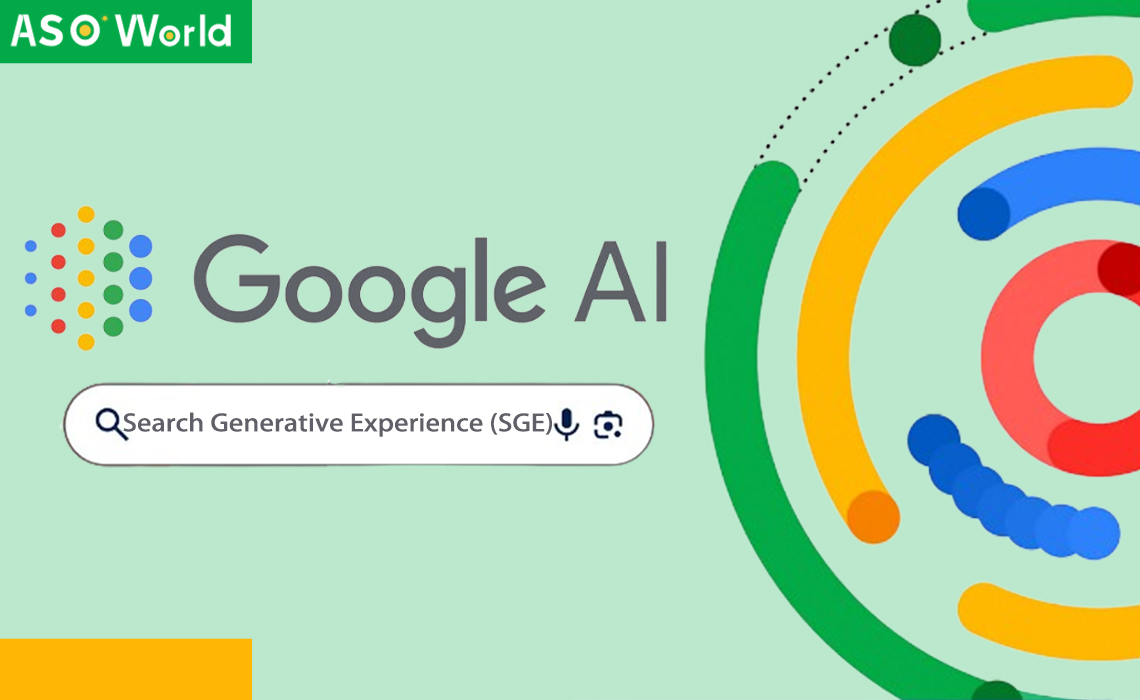
As Google's Search Generative Experience (SGE) becomes a permanent fixture, the marketing landscape anticipates a seismic shift in 2024.
Google's SGE, initially a temporary experiment, has seen its end date vanish, signaling its long-term integration into search. With AI at the forefront, Google is redefining search experiences for users and marketers alike.
Key Takeaways
A survey involving 2,205 U.S. adults reveals a strong preference for AI-enhanced search functions as the most sought-after AI-powered application.The survey also highlights other popular AI-driven solutions, such as intelligent virtual assistants, personalized shopping suggestions, and targeted advertising campaigns.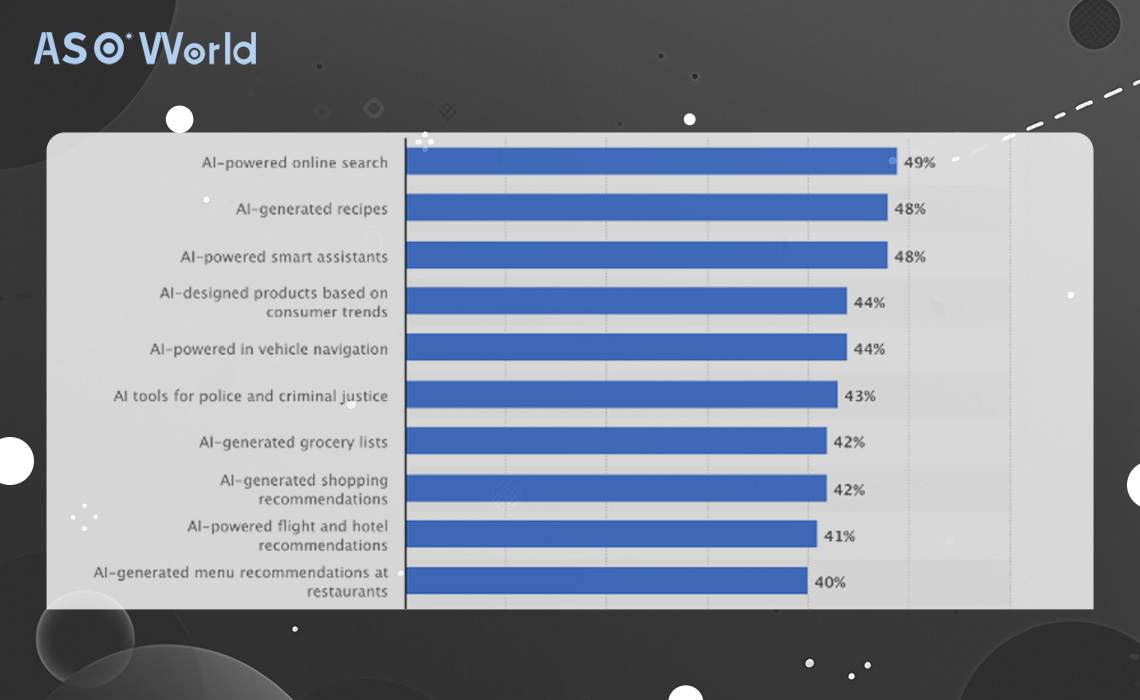
Data from the aforementioned survey indicates that over a quarter of American adults have confidence in the impartiality and accuracy of search results, brand endorsements, and the relevance of ads generated by AI. Additionally, close to one-third of the participants using AI for search are convinced of the factual correctness of the information provided.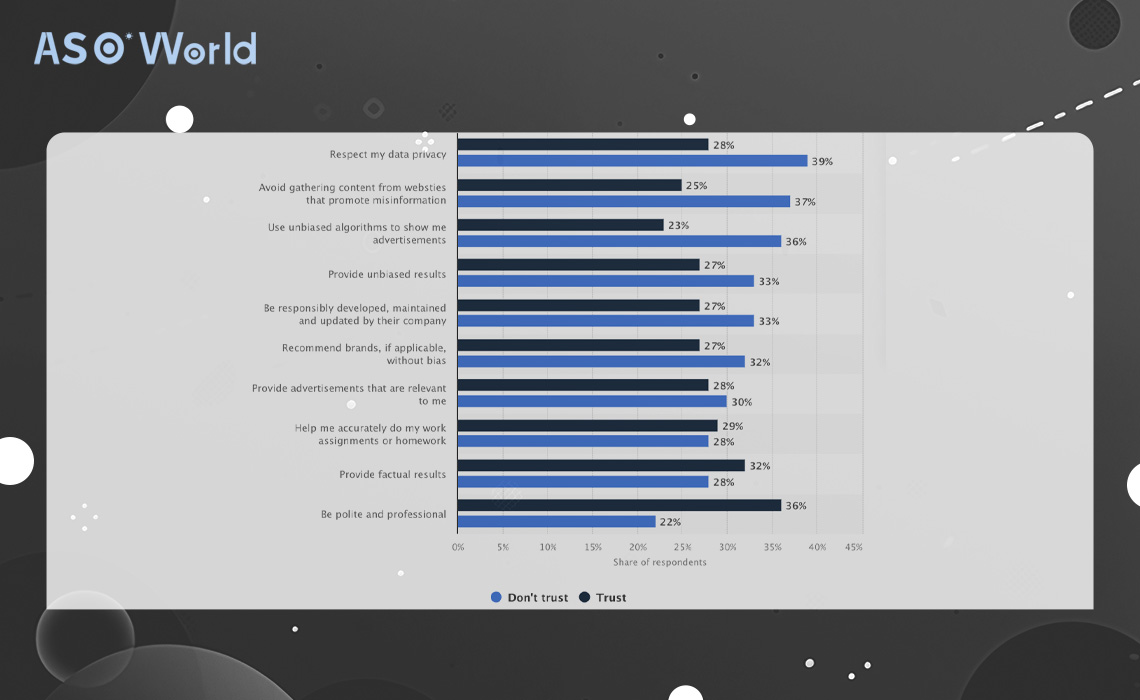
When it comes to embracing AI-driven search technologies, 40% of millennials express readiness to transition to advanced search experiences akin to Google's Search Generative Experience (SGE).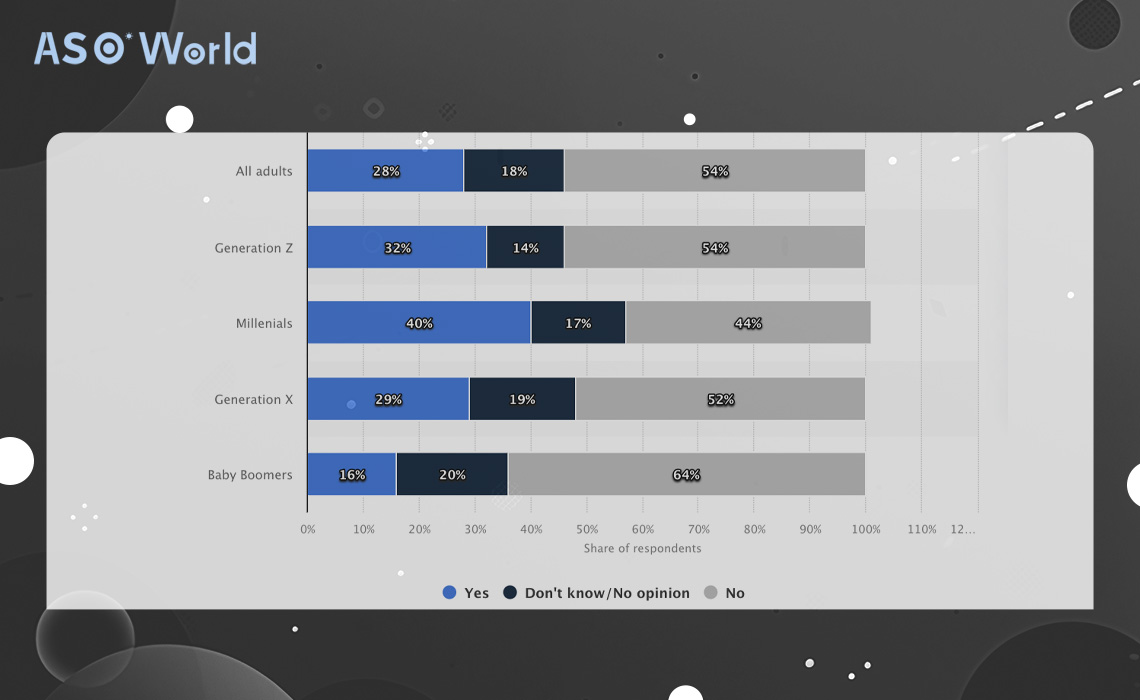
Google's CEO Sundar Pichai articulated during the July Q2 earnings call that advancing search with generative AI is among the company's chief ambitions.
The preceding quarter witnessed a significant leap with the debut of the Search Generative Experience (SGE), which employs generative AI to make the search process more intuitive. Users have reacted positively to this enhancement.
SGE is not only equipped to handle existing queries but also introduces novel pathways for user exploration.
Generative AI proves valuable in connecting various aspects for users researching topics or planning projects, thereby assisting them in making well-informed decisions.
The engineering prowess that facilitates our advancements in search technology is a testament to Google's commitment to excellence.
Improving the speed of AI search response remains a focal point, with significant strides made since the initial launch of SGE.
Google maintains its dedication to collaborating with the broader ecosystem to support a sustainable and open internet.
Google is actively exploring new advertising placements, recognizing their importance in the evolving search landscape.
⚡ New AI Features for Google's Search Generative Experience (SGE)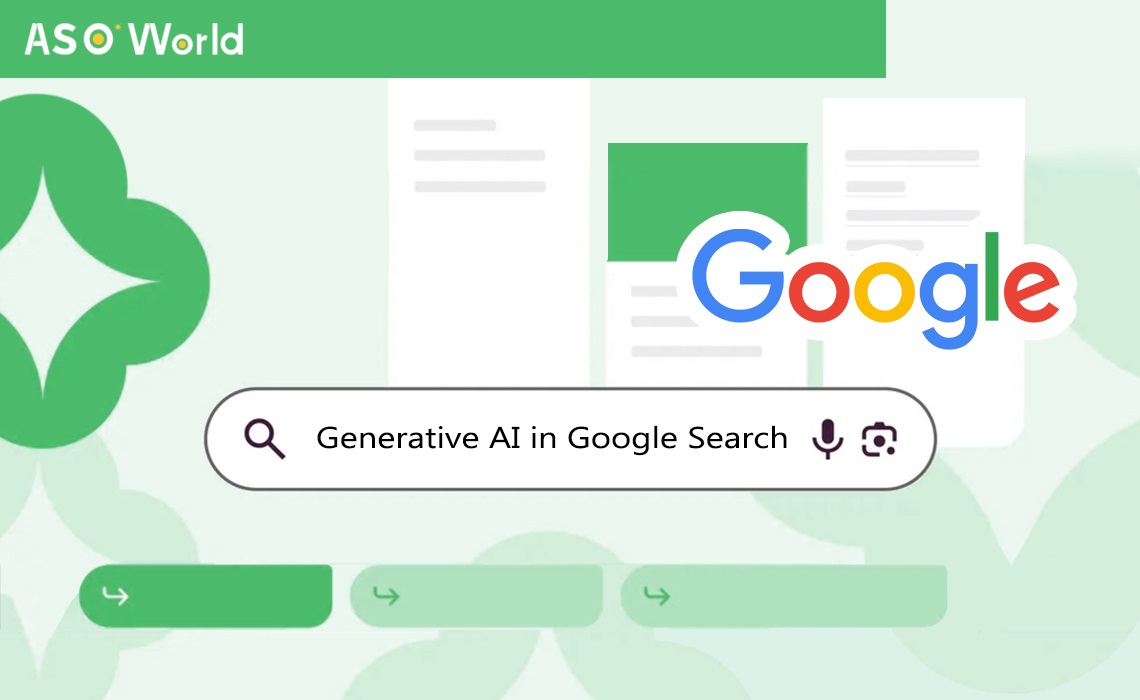
Further updates and capabilities have been added to SGE, informed by the feedback from its growing user base, including multimedia integration and improved code generation understanding.
With the expansion of SGE to new markets like India and Japan, Google is seeing a surge in user adoption and plans to continue this trend by reaching more countries and languages.
Google's ongoing initiatives aim to drive organic traffic to publishers while adding features to SGE, ensuring that the ecosystem remains robust and beneficial for all stakeholders.
The application of generative AI in search enables Google to cater to a wider array of informational needs and to facilitate questions that require multiple perspectives.
With SGE, more sources are being linked, broadening the range of content that can be discovered through search results.
Ads are proving to be helpful within the AI-enhanced search experience, providing users with relevant options and connecting them with businesses.
Google is experimenting with ad formats that are native to SGE, utilizing generative AI to create ads that are relevant throughout the search journey.
Lastly, Google introduces Bard as a complementary tool for SGE users, aimed at enhancing productivity and creativity by connecting users to their Google Docs and Gmail. Bard serves as a conversational interface to a large language model, offering a glimpse into the potential of AI to streamline and enrich user interactions with Google's suite of services.
The August State of AI report by McKinsey & Company, which analyzed the application of generative AI in professional and personal settings across various industries, was informed by a global survey of 1,684 respondents.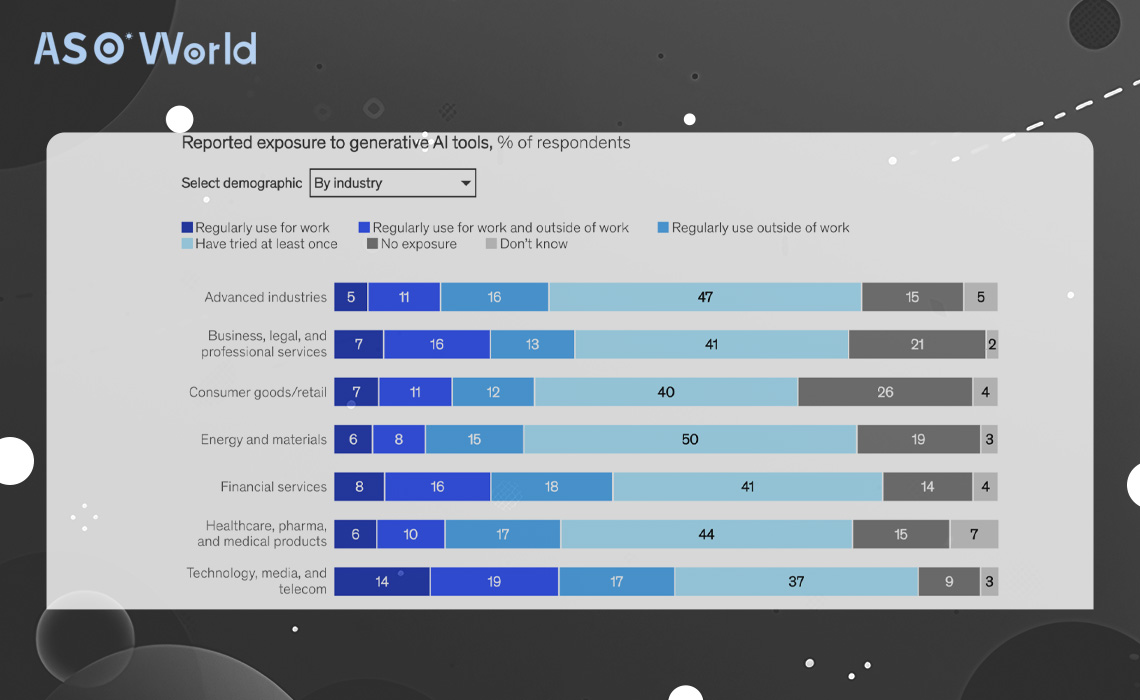
In their analysis released in October, Baron Insights highlighted the role of generative AI applications in search dominance, pointing out Google's edge due to its unparalleled collection of consumer data compared to its rivals.The analysis predicts that Alphabet, Google's parent company, will continue to lead the industry, bolstered by its vast data resources. This includes over 90% of comprehensive search queries, interactions with approximately four billion users worldwide, and a robust, specialized infrastructure capable of delivering search-centric results.
Alphabet's data collection extends far beyond just search, encompassing areas like mapping services, image repositories, video content, audio files, smart home devices, smartphones, travel services, and retail sectors.
With the Google Search Generative Experience, a generative AI agent currently in its beta phase, Alphabet is already showcasing its ability to enhance search outcomes through generative AI. Meanwhile, competitors are still striving to reach the benchmark set by Google's conventional search functionalities.
Google's unveiling of Gemini, their latest series of expansive language models, shed light on the diverse applications of these models within Google's ecosystem.The deployment of Gemini in various trials for the Search Generative Experience (SGE) has notably accelerated the response times.
Furthermore, the integration of the advanced Gemini Pro into SGE's counterpart, Bard, marks another significant enhancement.
The latest Schwab Equity Ratings Report provides an analysis of Google AI's competitive stance in the industry.While Gemini's initial release marks an improvement in inferencing capabilities, the report suggests it doesn't yet match the performance of OpenAI's GPT-4, which is currently seen as the industry's gold standard.
However, Gemini is set to enhance a range of Google services, including Bard, the Search Generative Experience (which remains in limited access), Google Ads, customer-centric cloud models and APIs, various applications, and the Chrome web browser. Notably, Gemini operates on Google's custom-designed Tensor Processing Units (TPUs), but it is anticipated that future versions will also utilize cutting-edge GPUs.
Despite Google (GOOGL) potentially lagging behind the partnership of Microsoft (MSFT) and OpenAI, the rapid pace of AI innovation means that forthcoming upgrades to Gemini could enable Google to remain competitive and become a significant player in the AI landscape.
⚡ Google's Ambitious AI Model Gemini Aims to Surpass OpenAI's GPT-4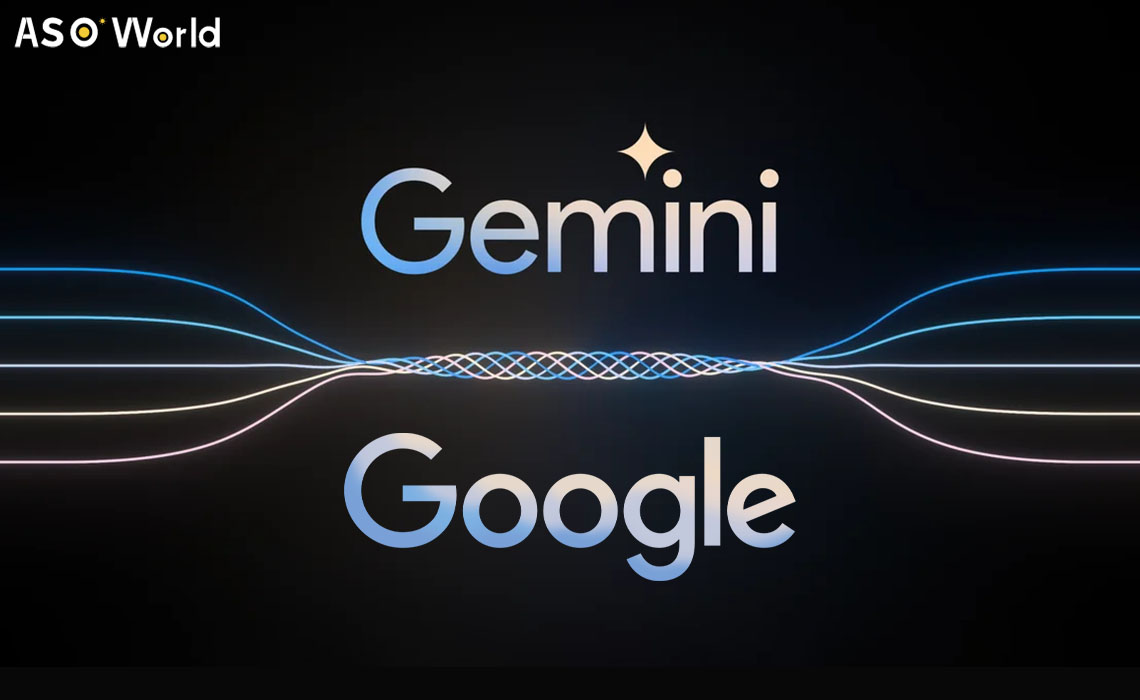
Google DeepMind's review of the year's AI breakthroughs underscored the impact of large language models (LLMs) in transforming search capabilities.LLMs have revolutionized the way information is structured and accessed, offering users a more dynamic and engaging way to interact with search engines. These engines now go beyond fetching data; they synthesize information, create original content, and build on users' previous search queries. Despite these enhancements, the fundamental goal of guiding users to the desired web content remains unchanged.
DeepMind's summary also spotlighted the latest enhancements to Bard, SGE's associated service, and teased upcoming developments for 2024, including Google Bard Advanced.
In a notable achievement, Gemini Pro surpassed GPT-3.5 in six out of eight benchmark tests, excelling in the MMLU, a critical measure for large AI models, and the GSM8K, which assesses elementary-level mathematical reasoning. Gemini Ultra is set to integrate with Bard in the upcoming year, introducing Bard Advanced—an innovative and sophisticated AI experience.
The implications of Google's Search Generative Experience (SGE) on copyright and the reduction of organic search traffic have become a growing concern, as reported by sources like the Atlantic (in partnership with WSJ), News/Media Alliance, and Tom's Hardware, among other publishing entities.These outlets have cited examples where SGE appears to use content from publishers to generate responses, potentially eliminating the need for users to conduct additional research.
Furthermore, the anticipated impact of SGE on the volume of organic search traffic that websites depend on has prompted the filing of a class action lawsuit against Google in mid-December.
The increasing appetite for generative AI applications and the AI-enhanced search, coupled with the evident revenue opportunities through Google Ads, supersedes the concerns surrounding copyright and organic traffic disruption.
Hence, it's reasonable to predict that SGE will become an integral component of Google's search results, akin to existing SERP elements like featured snippets, which have progressively relegated organic results to lower positions. This evolution underscores the growing importance of securing the top position in organic search rankings.
Click "Learn More" to drive your apps & games business with the ASO World app promotion service now.
The integration of SGE signifies a pivotal moment for search technology. While it presents challenges, particularly in terms of organic traffic and copyright concerns, the potential for enhanced user experiences and more sophisticated search journeys is undeniable. Marketers and content creators must remain agile, adapting to the nuances of AI-assisted search and the opportunities it brings for more targeted and relevant advertising. Google's commitment to a seamless, AI-driven search ecosystem bodes well for those who can leverage these advancements effectively.

Get FREE Optimization Consultation
Let's Grow Your App & Get Massive Traffic!
All content, layout and frame code of all ASOWorld blog sections belong to the original content and technical team, all reproduction and references need to indicate the source and link in the obvious position, otherwise legal responsibility will be pursued.